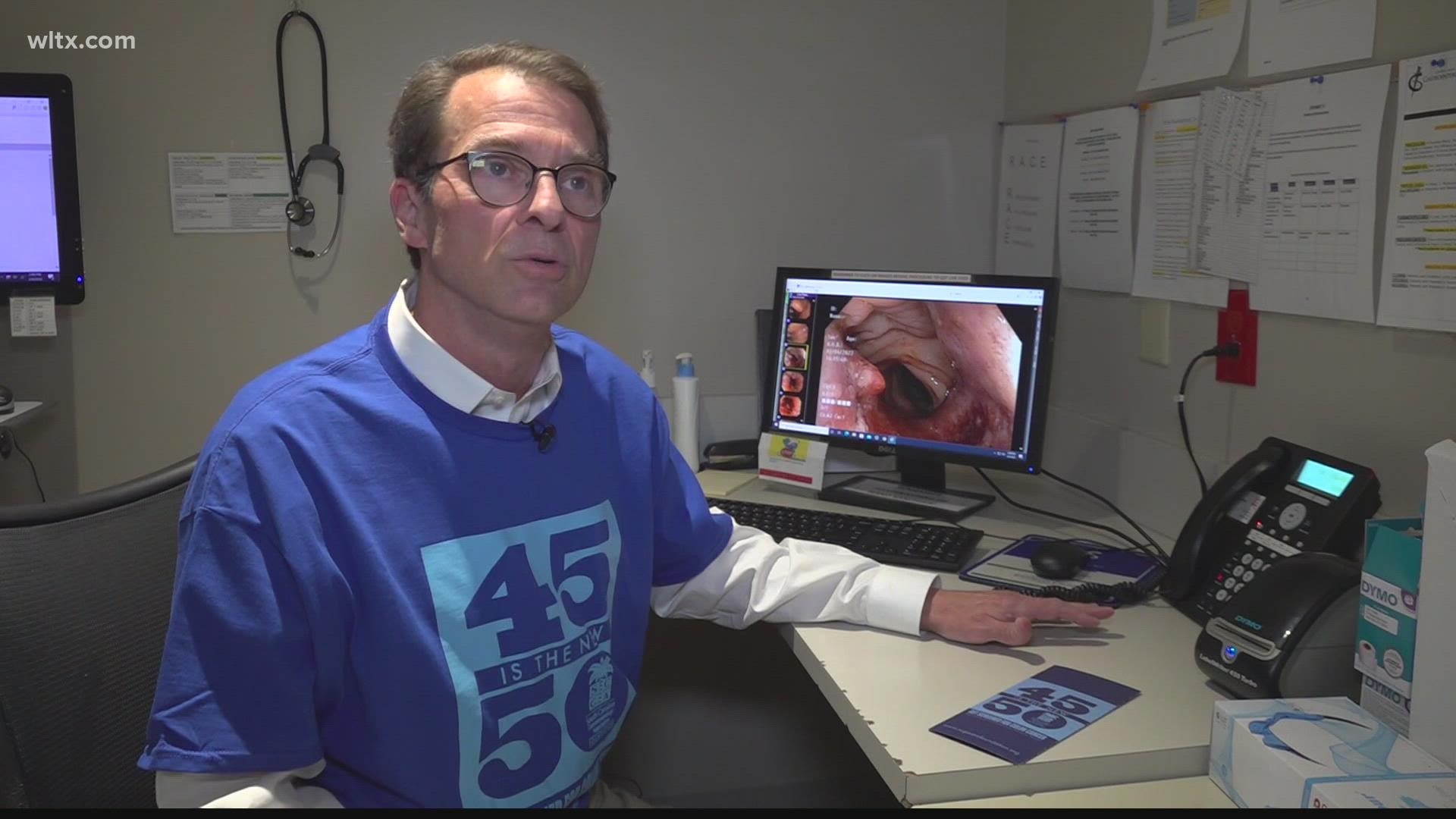COLUMBIA, S.C. — Colon cancer is the second leading cause of cancer deaths in South Carolina.
March is colon cancer awareness month. One goal of the initiative is to encourage people to get screened for colon cancer because it could save lives.
In South Carolina, USC's Colorectal Cancer Prevention Network partners with doctors to offer free screenings to eligible adults.
One of those doctors is Gastroenterologist Dr. March Seabrook in West Columbia. While looking at pictures from a colonoscopy, Seabrook pointed out what healthy versus unhealthy lining looks like in a colon.
Seabrook told News19 that colon cancer is a leading cause of cancer deaths, yet it's one of the most preventable forms. The key to prevention, Seabrook said, is getting screened.
“Colon cancer is now developing earlier, whether it's our lifestyle, things we eat, things we’re exposed to, whether it's genetics, some of that’s unknown. But we know at least demographically that we are finding more cancers earlier,” explained Seabrook.
RELATED: 'Black Panther' actor, South Carolina native Chadwick Boseman dies at 43 after cancer battle
Because of these earlier cases, doctors recommend everyone get a colonoscopy at age 45 instead of the previous recommendation of 50. If there's family history of colon cancer, it's recommended to get screened sooner.
"A good, well-balanced diet, exercise, proper weight; all those things are good in terms of preventing colon cancer. There’s nothing and there's certainly no better test than a colonoscopy,” said Seabrook.
Doctors use colonoscopies to look for cancer-causing polyps, if found they can remove them.
The free colon cancer screenings are offered at over 120 clinics across the state. The Network’s director, Annie Thibault, said if someone is uninsured and is at or below the 200% poverty line they qualify for the program. For an individual, that means making less than $34,000 a year.
“It’s intended for patients who have no symptoms because normally colorectal cancer is known to be one of the cancers that shows without symptoms and that’s why screening is so important,” said Thibault.
The program helps about 900 people get free screenings a year.
“My father is a stage two colon cancer survivor," shared Thibault. Because of her family history, she got her first colonoscopy at the age of 32. "In my first screening I had tubular adenomas, which are adenomas that are known to be a precursor to cancer, and they were removed.”
Thibault believes if she didn’t get screened when she was younger, she could’ve likely developed cancer like her dad.
If someone is hesitant to get a colonoscopy because of the required preparation and cleanse before the procedure, Thibault had this to say to them:
“For having people in my family that have had cancer, drinking the prep, which is often what most people are most scared of and not want to have to do, it is nothing compared to having to go through cancer treatment."
Thibault said most free clinics and federally qualified health centers are enrolled in the Network's free program. She recommends people ask their doctors about getting a screening, or call the Colorectal Cancer Prevention Network at (803)777-1231. The Network will pair eligible patients with a care navigator that will figure out the best clinic for them and whether they need a colonoscopy or at-home stool sample.

